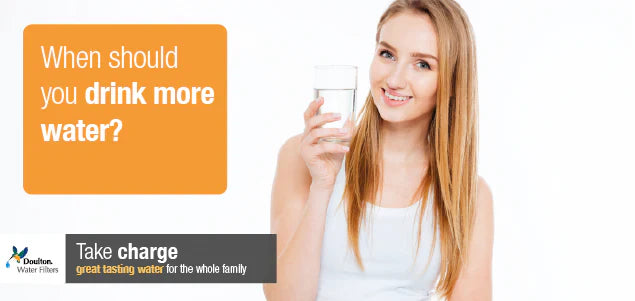Everyone should be aware that drinking water is vital to life, health and wellbeing, but how much should we actually be drinking?
The standard response is usually eight glasses a day, but perhaps a catch-all solution is not ideal when individual needs can be so different.
Does a 6ft 5in male athlete really need to consume the same amount of water as a 5ft 2in 90-year-old woman, or a five-year-old child? Surely the needs of such a vastly differing group are not the same?
In the UK Government health leaders suggest people consume 6-8 glasses of drinking water every day.
Now, the Mayo Clinic - a not-for-profit health and wellness organisation with centres across the USA - has conducted research into how the human body's need for drinking water varies.
The clinic claims it is possible to work out exactly how much drinking water individuals need to consume using the following calculations:
- Body weight in pounds divided by 2.2
- Multiplied by your age
- Divide that number by 28.3
- The result is the amount of drinking water in ounces that is ideal for your body
- Divide that by figure by eight for the number of cups (assuming they hold eight ounces)
With water making up more than 50-60 per cent of an adult's body, drinking water is essential to staying healthy for everyone and allows the body to function efficiently.
Drinking water: when should you have more?
Outline figures and research-driven calculations serve as a standard guide to how much water people should be ideally aiming to drink.
However, there are times when an individual's need is increased. Times when better hydration may be required include:
Pregnant/breastfeeding women
The demands on the body of carrying a baby - and the importance of not becoming dehydrated - see the recommendation for pregnant women rise by another 2-4 glasses per day. This advice is also applied to breastfeeding to stop new mums becoming dehydrated and help maintain a good milk supply.
Exercise
The best advice is to drink normally throughout the day then have a glass of water before exercising, then continue drinking water while working out. It is difficult to pinpoint an exact amount as intensity and body make-up all make an impact. This should then be followed by enjoying a glass of drinking water after exercising.
Hot weather
The temperature can also push up the amount of drinking water needed as the body sweats to cool down, causing it to lose fluids. Again how much the body needs is dependent on the level of heat and how active the person is. As a result it is better to monitor the colour of urine as a good indicator as to whether you are hydrated or not. If urine is dark yellow, it is time to start drinking water.
When a simple resource is such an important part of wellbeing it is important to ensure your body is getting the very best. To ensure you are drinking the freshest, cleanest water use a Doulton Filter.
Don't compromise on your hard work to feel your best by drinking water that isn't the best you can get - use a water filter.






